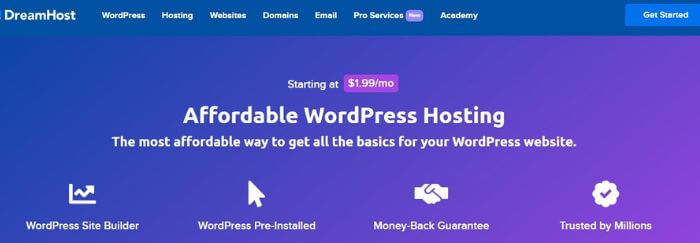5 Shopify Alternatives for Your E-Commerce Store
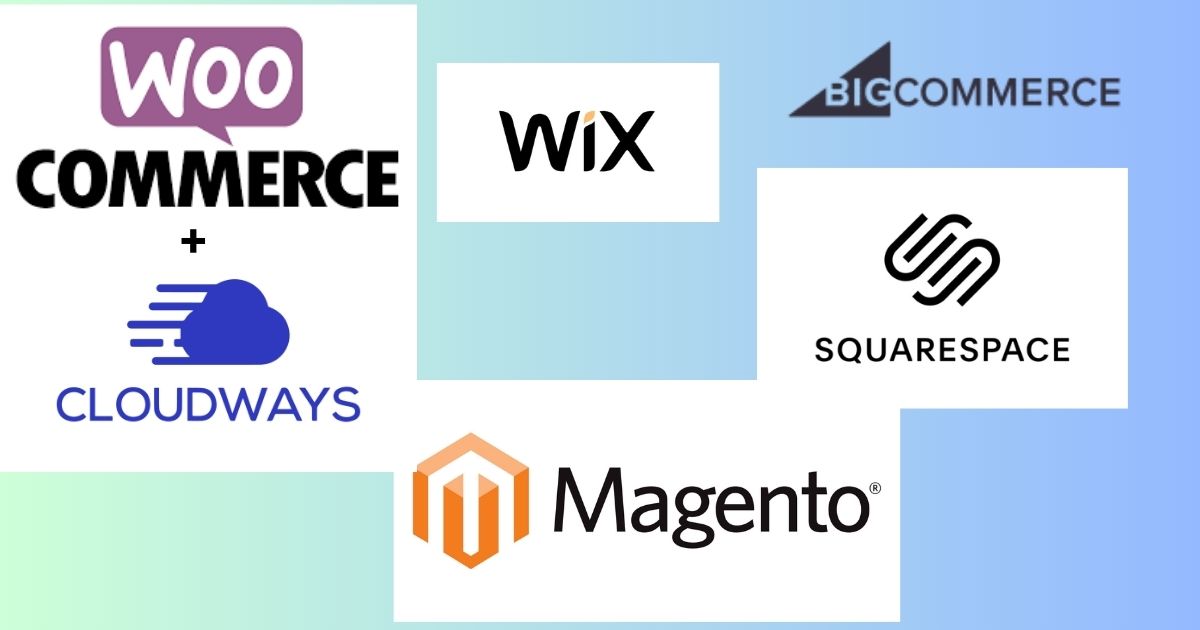
Introduction
Are you feeling a bit overwhelmed by all the buzz around Shopify and wondering if there might be better options out there for your online store? Well, you’re in the right place! Today, we’re going to explore some top Shopify alternatives that could be just what you need to take your e-commerce game to the next level.
Before we dive in, let’s quickly chat about what really matters when choosing an e-commerce platform. You’ll want to consider things like ease of use, customization options, pricing, scalability, and of course, performance.
Speaking of performance, have you heard about Cloudways? They’re doing some pretty cool things with WordPress and WooCommerce hosting that could seriously boost your online store’s speed and reliability. But more on that later!
Shopify is very expensive and offers limited features. That is why you should consider hosting your online store on a trusted managed hosting company like Cloudways where you can deploy WordPress and WooCommerce that offer you great features for a successful online business.
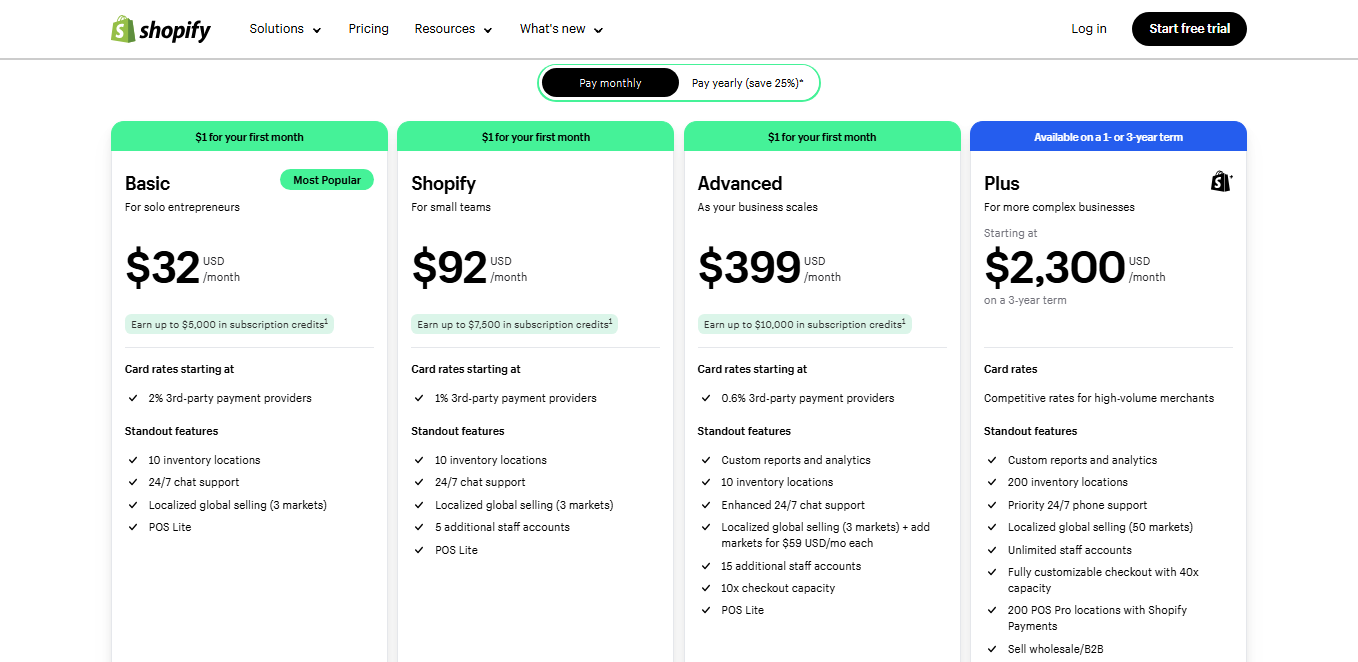
Ready to discover some awesome Shopify alternatives? Let’s get started!
Top 5 Shopify Alternatives for Your E-Commerce Store
1. WordPress with WooCommerce on Cloudways Hosting
First up, we’ve got the dynamic duo of WordPress and WooCommerce. This combo is like the Swiss Army knife of e-commerce – it can do just about anything!
Overview: WordPress is the world’s most popular content management system, and when you pair it with WooCommerce, you’ve got a powerhouse e-commerce solution. The best part? It’s incredibly flexible, allowing you to create pretty much any type of online store you can imagine.

Price: Here’s where things get interesting. WordPress itself is free, and so is WooCommerce. You’ll need to factor in costs for hosting, a domain name, and any premium themes or plugins you might want.
But here’s a pro tip: if you host with Cloudways, you can get a high-performance WordPress + WooCommerce setup starting at just $10/month. That’s a steal compared to some other platforms!
Services: With WordPress and WooCommerce, the sky’s the limit. You can customize every aspect of your store, scale up as your business grows, and integrate with countless other tools and services. Plus, with Cloudways handling your hosting, you’ll get blazing-fast load times and rock-solid reliability.
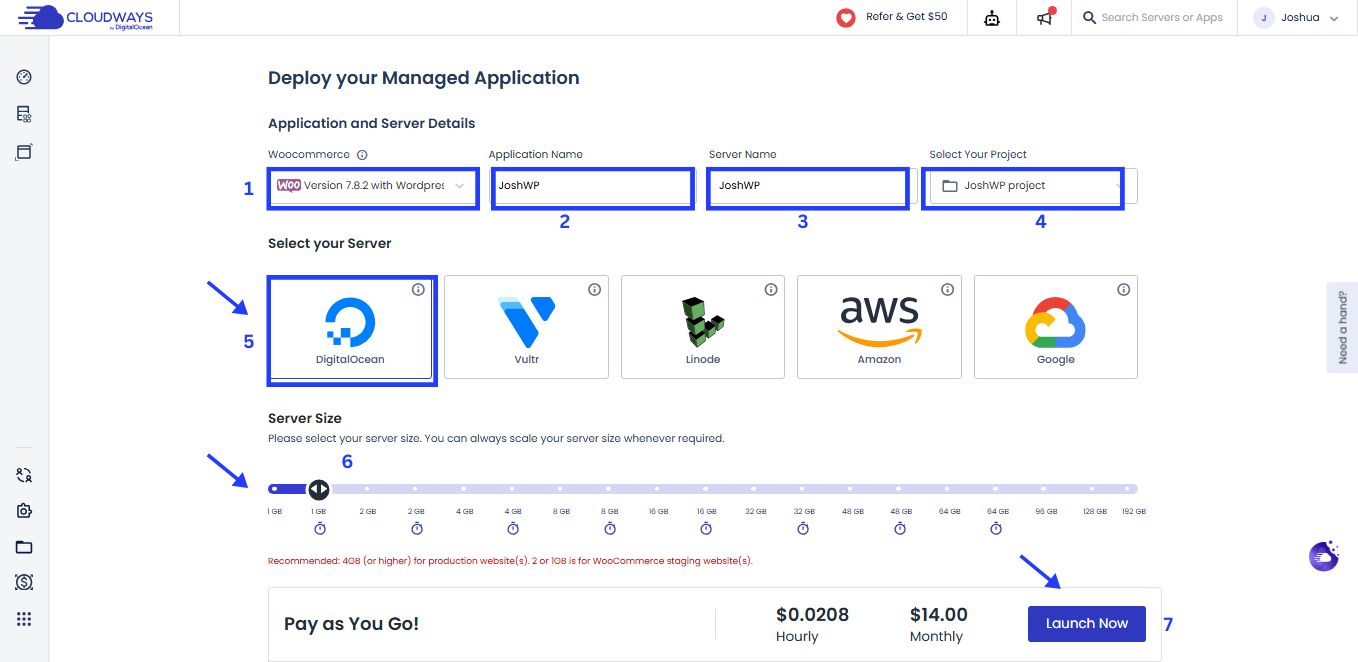
Pros:
- Unmatched flexibility and customization
- Huge community and ecosystem of plugins and themes
- Full control over your data and platform
- Great for SEO
Cons:
- Steeper learning curve than some all-in-one solutions
- Requires more hands-on management
Value for Money: When you combine WordPress and WooCommerce with Cloudways hosting, you’re getting an incredibly powerful and flexible e-commerce solution at a fraction of the cost of many competitors. Plus, Cloudways takes care of all the technical stuff, so you can focus on growing your business.
Check out this detailed article on how to set up WooCommerce on Cloudways.
Why Choose WordPress with WooCommerce on Cloudways?
Speaking of WordPress and WooCommerce, let’s chat about why hosting this powerful combo on Cloudways is such a game-changer:
Performance: Cloudways optimizes your WooCommerce store for lightning-fast speed. They use cutting-edge technologies like Varnish, Memcached, and Redis to ensure your store loads quickly, even during high-traffic periods.
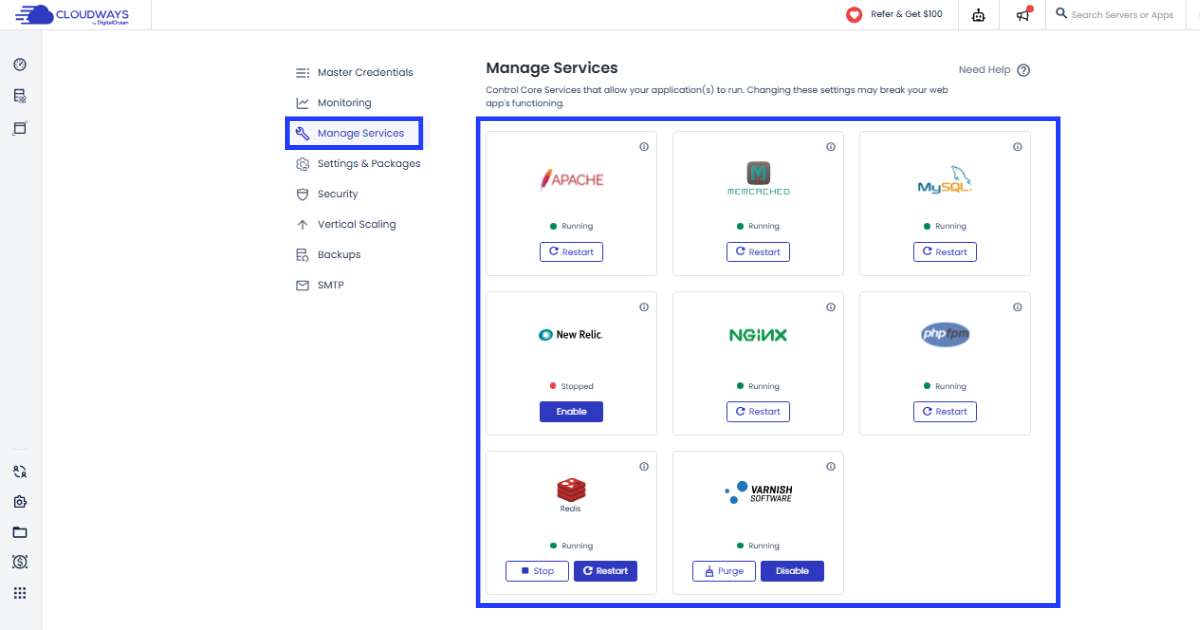
Scalability: As your business grows, Cloudways makes it easy to scale up your resources. No need to worry about outgrowing your hosting – they’ve got you covered from day one to day one million!
You can easily scale up your server size as shown below.
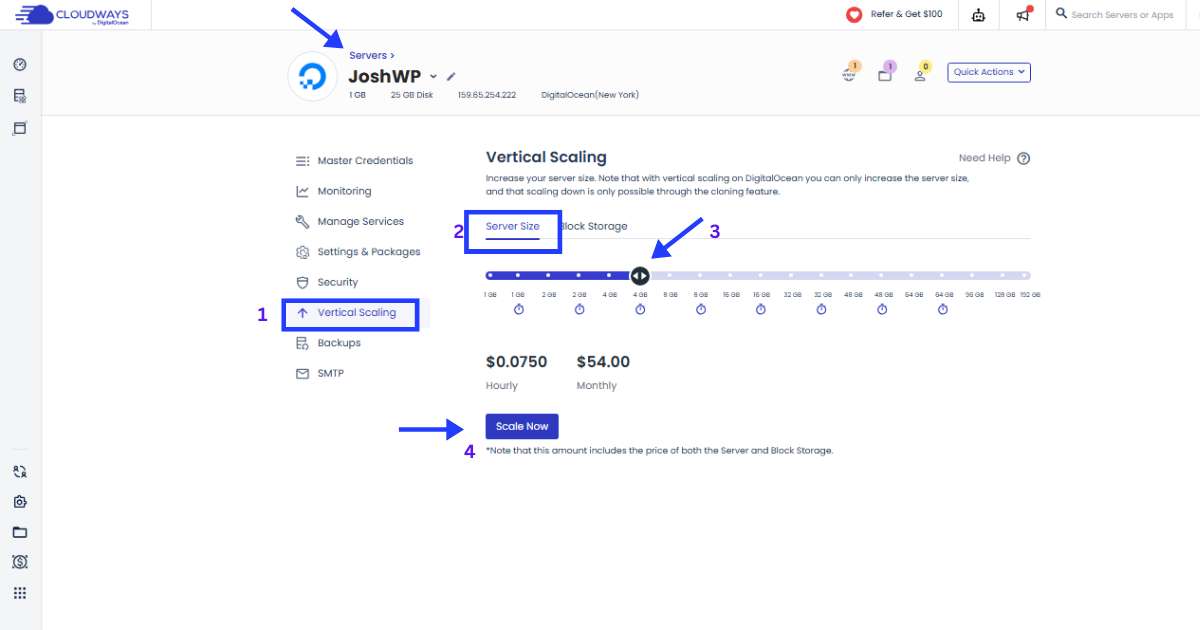
You can also scale up your block storage anytime as shown below.
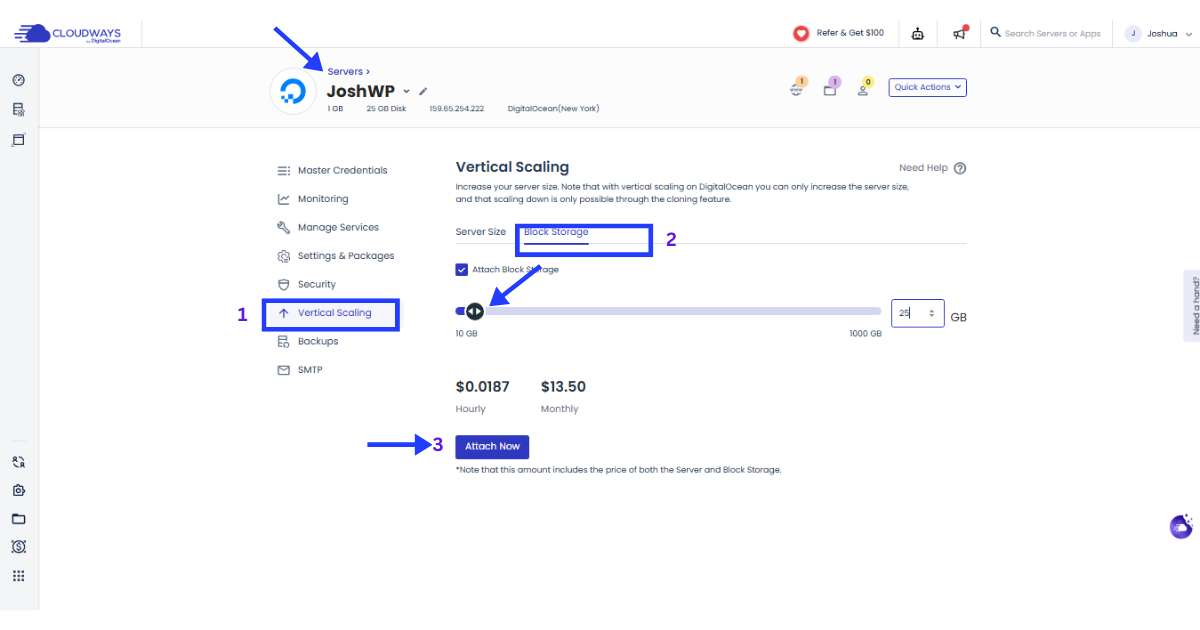
Support: With Cloudways, you get 24/7 expert support. These folks know their stuff when it comes to WordPress and WooCommerce, so you’re never left in the lurch.
Cost Efficiency: Cloudways offers pay-as-you-go pricing, meaning you only pay for the resources you use. This can lead to significant savings compared to traditional hosting or all-in-one e-commerce platforms.
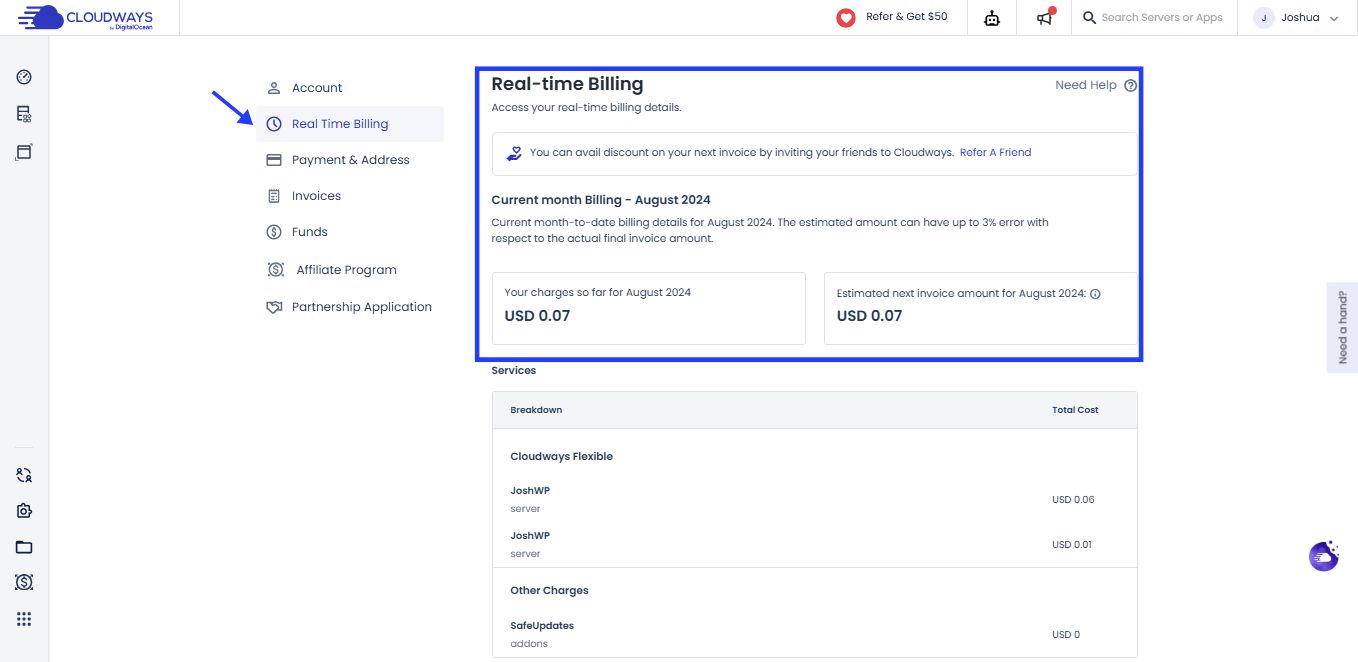
2. BigCommerce

Next up, let’s talk about BigCommerce – a robust, all-in-one e-commerce platform that’s giving Shopify a run for its money.
Overview: BigCommerce is designed to be a one-stop shop for all your e-commerce needs. It’s packed with features and can handle everything from small boutiques to large-scale online operations.
Price: BigCommerce offers tiered pricing plans starting at $29.95/month for their Standard plan, going up to $299.95/month for the Pro plan. There’s also an Enterprise plan with custom pricing for larger businesses.
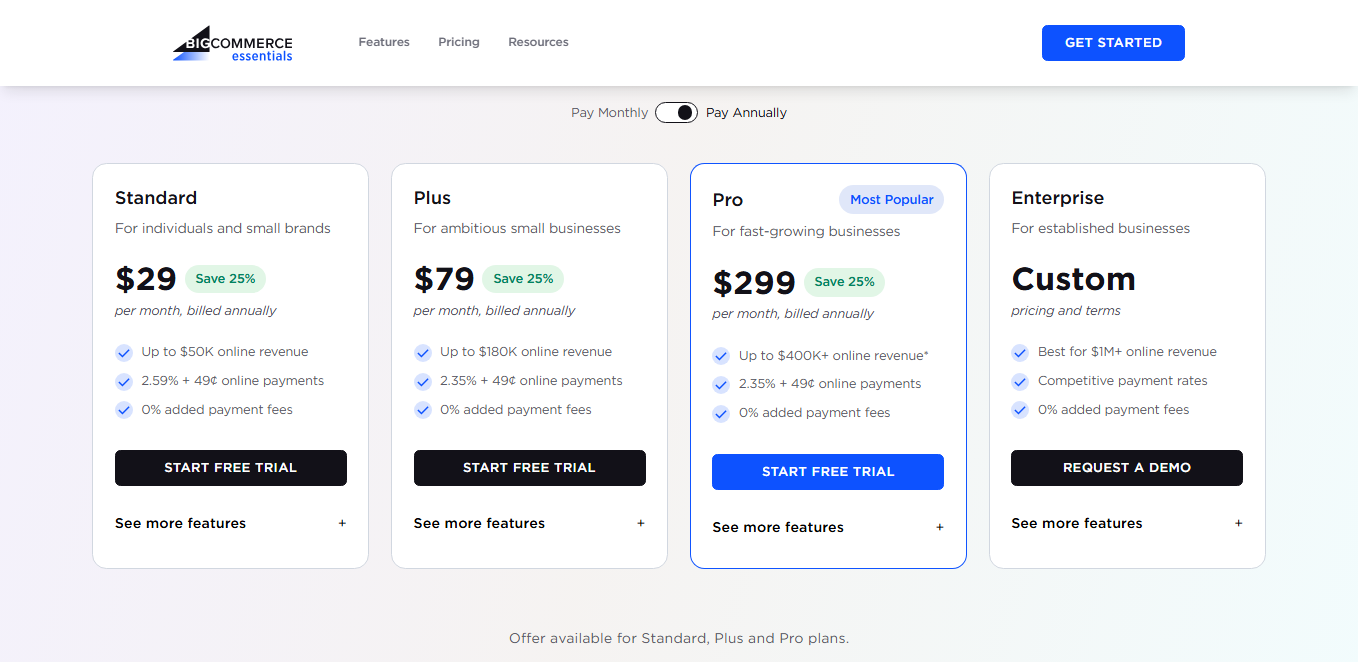
Services: BigCommerce comes with a ton of built-in features, including multi-channel selling, professional reporting tools, and a wide range of payment gateways. They also offer 24/7 support, which is always a plus.
Pros:
- Feature-rich out of the box
- Excellent for scaling businesses
- No transaction fees on their platform
Cons:
- Can be pricier than some alternatives
- Some users find the interface less intuitive than Shopify
Value for Money: While BigCommerce can be more expensive than some options, it offers a lot of value for growing businesses that need robust features without the hassle of managing their own hosting.
3. Wix eCommerce

If ease of use is your top priority, Wix eCommerce might be just what you’re looking for.
Overview: Wix is known for its user-friendly website builder, and their e-commerce solution brings that same simplicity to online stores.
Price: Wix eCommerce plans start at $23/month for the Business Basic plan, with higher-tier plans offering more features at $27/month and $49/month.
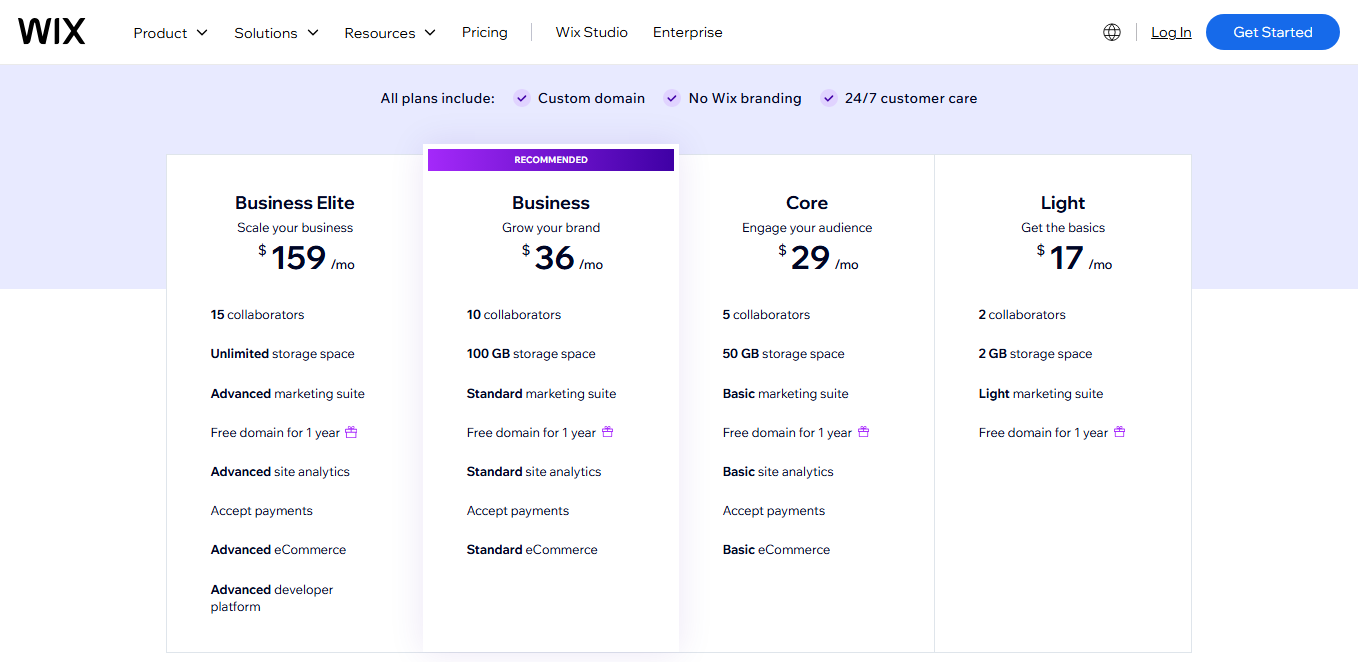
Services: Wix offers a drag-and-drop store builder, beautiful templates, and built-in features like abandoned cart recovery and customer accounts.
Pros:
- Super easy to use, even for beginners
- Beautiful, mobile-responsive templates
- All-in-one solution with hosting included
Cons:
- Less flexibility than platforms like WordPress + WooCommerce
- Can be challenging to switch to another platform later
Value for Money: Wix eCommerce offers good value if you’re looking for a simple, straightforward way to get your store online quickly. However, other options might be more cost-effective in the long run for more complex stores or those planning significant growth.
4. Magento

Magento is a platform worth considering for those of you running larger-scale operations or planning for significant growth.
Overview: Magento is an open-source e-commerce platform known for its robustness and scalability. It’s often the choice of larger businesses and enterprises.
Price: Magento offers a free open-source version, but most businesses opt for Magento Commerce, which has licensing fees starting at around $22,000/year. You’ll also need to factor in hosting costs.
Services: Magento provides a wealth of features for large-scale e-commerce, including multi-store management, advanced SEO tools, and extensive customization options.
Pros:
- Extremely powerful and scalable
- Great for businesses with complex needs
- Large community and marketplace of extensions
Cons:
- Steep learning curve
- Can be expensive, especially for smaller businesses
- Requires significant technical expertise to set up and manage
Value for Money: For large businesses or those with complex e-commerce needs, Magento can provide excellent value. However, for smaller operations, the cost and complexity might be overkill.
5. Squarespace

Last but not least, let’s talk about Squarespace – a platform that’s all about making your store look good.
Overview: Squarespace is known for its stunning templates and ease of use. While it started as a general website builder, it now offers solid e-commerce capabilities.
Price: Squarespace’s e-commerce plans start at $26/month for the Basic plan, with more advanced features available on the $40/month Advanced Commerce plan.
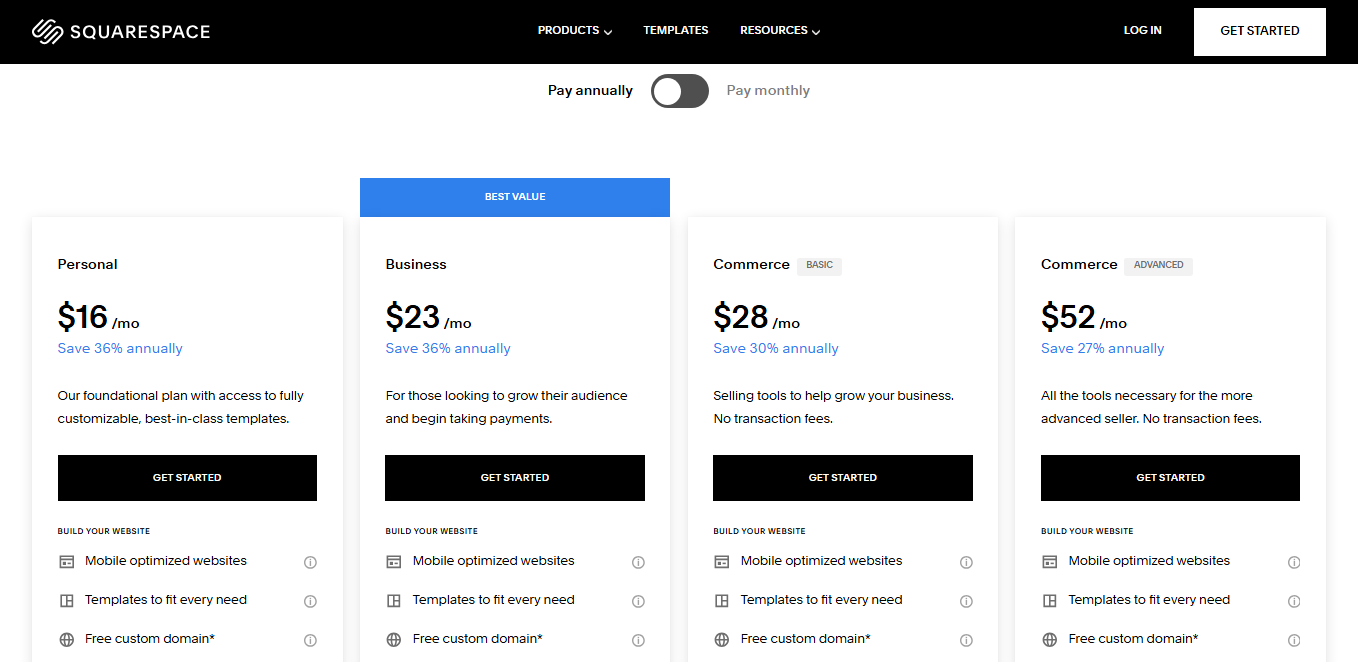
Services: Squarespace offers beautiful templates, an easy-to-use interface, and built-in features like abandoned cart recovery and gift cards.
Pros:
- Gorgeous, mobile-responsive designs
- Easy to use for beginners
- All-in-one solution with hosting included
Cons:
- Less flexible than some other platforms
- Fewer third-party integrations compared to competitors
Value for Money: If design is a top priority and you don’t need complex customizations, Squarespace offers good value. However, for more feature-rich or customizable stores, other options might be more suitable.
How Do These Platforms Compare
Now that we’ve looked at each platform individually, let’s break down how they stack up against each other:
Comparison of E-Commerce Platforms
| Feature | WooCommerce on Cloudways | BigCommerce | Wix eCommerce | Magento | Squarespace |
|---|---|---|---|---|---|
| Starting Price | $10/month (Cloudways hosting) | $29.95/month | $23/month | Free (Open Source), $22,000/year (Commerce) | $26/month |
| Speed | Extremely fast (optimized hosting) | Good | Good | Good (depends on hosting) | Good |
| Usability | Moderate (steeper learning curve) | Good | Excellent | Complex | Excellent |
| Customization | Highly flexible | Good | Limited | Highly flexible | Limited |
| Scalability | Excellent (easily scalable with Cloudways) | Very Good | Moderate | Excellent | Moderate |
| SEO Capabilities | Excellent | Very Good | Good | Excellent | Good |
| App Ecosystem | Vast (WordPress plugins) | Large | Moderate | Large | Limited |
| Payment Gateways | Numerous options | Numerous options | Limited options | Numerous options | Limited options |
| Multichannel Selling | Available via plugins | Built-in | Limited | Built-in | Limited |
| Hosting | Managed by Cloudways | Included | Included | Self-hosted or third-party | Included |
| Performance Optimization | Built-in caching, CDN | Good | Good | Requires configuration | Good |
| Security | Managed by Cloudways | Included | Included | Requires configuration | Included |
| Support | 24/7 expert support | 24/7 support | 24/7 support | Community support (paid for Enterprise) | 24/7 support |
| Cost Efficiency | Excellent (pay for what you use) | Good | Good | Varies (can be expensive) | Good |
Price Comparison:
- WordPress + WooCommerce on Cloudways: Most cost-effective for flexible, customizable stores
- Wix eCommerce: Affordable for simple stores
- Squarespace: Mid-range pricing with a focus on design
- BigCommerce: Higher-end pricing with robust features
- Magento: Most expensive, suited for large enterprises
Service Comparison:
- Features: Magento and BigCommerce lead in built-in features
- Support: BigCommerce and Wix offer strong customer support
- Customization: WordPress + WooCommerce and Magento offer the most flexibility
Pros and Cons Overview:
- Ease of Use: Wix and Squarespace
- Scalability: Magento and BigCommerce
- Flexibility: WordPress + WooCommerce
- Design: Squarespace and Wix
Value for Money: Overall, WordPress + WooCommerce hosted on Cloudways offers the best balance of features, flexibility, and cost for most e-commerce businesses.
Conclusion
Whew! We’ve covered a lot of ground, haven’t we? Let’s wrap this up with some key takeaways:
- WordPress + WooCommerce on Cloudways offers the best balance of flexibility, performance, and cost for most e-commerce businesses.
- BigCommerce is great for larger stores needing robust out-of-the-box features.
- Wix eCommerce and Squarespace are solid choices for beginners or those prioritizing ease of use and design.
- Magento is the go-to for large enterprises with complex needs.
Remember, the best platform for you depends on your specific needs, technical skills, and business goals. But if you’re looking for a recommendation, we’re big fans of the WordPress + WooCommerce + Cloudways combo.
It gives you the flexibility to create any kind of store you want, the performance to keep your customers happy, and the scalability to grow as big as your dreams.
10. Additional Resources
Want to learn more? Check out these resources:
Disclosure: We may earn commission for purchases that are made by visitors on this site at no additional cost on your end. All information is for educational purposes and is not intended for financial advice. Read our affiliate disclosure.




